HISTORY OF BAOBAB SECONDARY SCHOOL
Gender and Education in Tanzania
The education system in Tanzania, during the past 20 years, has expanded in secondary school and university enrolments; however, there are not enough schools to satisfy the demand of a growing nation. As a result, there tends to be a marked gender, regional and district bias. Mostly the male gender is favored. Statistics from 2001 show that only 23% of students graduate to secondary education, and of these, only 20% in Form IV attain good grades, 55% pass, and 25% fail. The female: male ratio for Form IV in private schools was 44:56, for public schools it was 35:56. For Form VI it was even lower, 22:78 and 24:76 respectively. This ratio has not improved since 1993. At that time, secondary schools ratios were 45:55 for private schools and 41:59 for public schools.
Gender and the District
The general feature of secondary education in the Bagamoyo district is that sex ratio fovours boys. The reason for this is entrance competition due to the shortage of secondary schools, early marriages for girls for the sake of securing a good dowry, a prevalence of unwanted pregnancies, the need of girls to help mothers with homestead domestic chores and parental passiveness, cultural suspicions and fear of the effects education will have on their daughters. In most villages of south-eastern Bagamoyo, more than 90% of the population is Muslim, and here strong socio-religious pressures deter families from sending their female children to secondary schools. This belief overrides the logic and recognition that education has had positive effects on promotion of maternal and child health, on family welfare, and in economic, social and political benefits.
Gender and Policy
Tanzania's Constitution, advocates for equal rights between men and women and Tanzania is a signatory to the global Convention of the Elimination of All Forms of Discrimination Against Women (CEDAW). In 1992, Tanzania established a policy on Women in Development, and has since actively promoted efforts to re-align the gender bias in all walks of life. The goals set in the Tanzania Development Vision 2025, which envisages a situation whereby "All Tanzanian's of all races, gender and creed will be living in a substantially developed society with high quality livelihood", will most certainly be compromised if the gender imbalance in education is not addressed. This couples well with the National Poverty Eradication Strategy (NPES) and the Agricultural Sector Development Strategy (ASDS), which recognize women, have a dynamic, economic and leadership role to play in nation building.
Shajar Schools Association (SSA)
It is in this light, that SHAJAR SCHOOLS ASSOCIATION (SSA) was established as an NGO to cater specifically for girl's secondary education at O level and A level. Registered on 18th May 2004 (certificate of incorporation number 48933) as a company limited by guarantee and a non-profit organization, SSA has the following aims and objectives:
- To establish and run schools, colleges and other educational institutions and to act as a holding organization in the provision of education to women at various levels of nursery, primary, secondary and university; and
- To organize and carry out research, training workshops and seminars for the advancement of knowledge of women in areas seen to have knowledge and information gaps either in the scholarly area or general public.
In fulfilment of the above main objectives, SSA embarked on building and registering a girls' secondary school located at Mapinga village in Zinga ward (Yombo Division, Bagamoyo District, Coast Region).
BSS is registered
In compliance with the requirement of the National Educational Act (number 25 of 1978 section 26(3)), the SSA was registered as owner of Baobab Secondary School for Girls (BSS). BSS is registered as a non-Government school (number S 1597) on 14th April 2005. It is permitted to run and manage two streams of Form one to six. Supplementary to that, on 1st July 2005, the Chief Education Officer also granted BSS the permit to enrol form five students.
Baobab Secondary School (BSS) Inaugurated
Baobab Secondary School was officially inaugurated by The President of United Republic of Tanzania His Excellency, Jakaya Mrisho Kikwete on Saturday 10th March 2007. After official opening he officiated the 1st form six graduation.
Baobab Secondary School is a campus style, girls boarding establishment opened to the public on 15th January 2005, by enrolling Form I students and in March 2006 enrolled its first Form V students.
The school has been specially designed by top architects and built to the highest construction standards. The spacious eighteen-acre campus is situated immediately adjacent to the Dar Es Salaam-Bagamoyo road. It is approximately 40 kilometres from Dar and 30 kilometres from Bagamoyo.
BSS takes care to minimise the stress of the first time girl student boarder by providing a high degree of security, comfort and good food. These three things, we believe, are essential for any good learning environment. The Baobab Secondary School is aware of and sensitive to the problems and barriers girls' face during their secondary education. So the school buildings and curriculum have been designed to give them maximum educational opportunities in a secure, calm and sheltered environment
